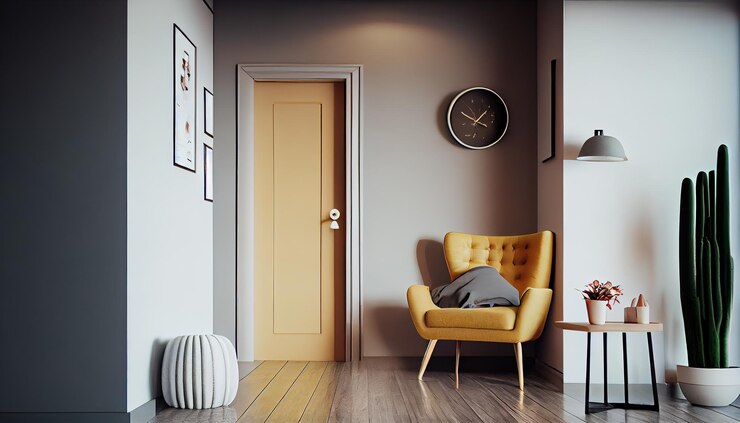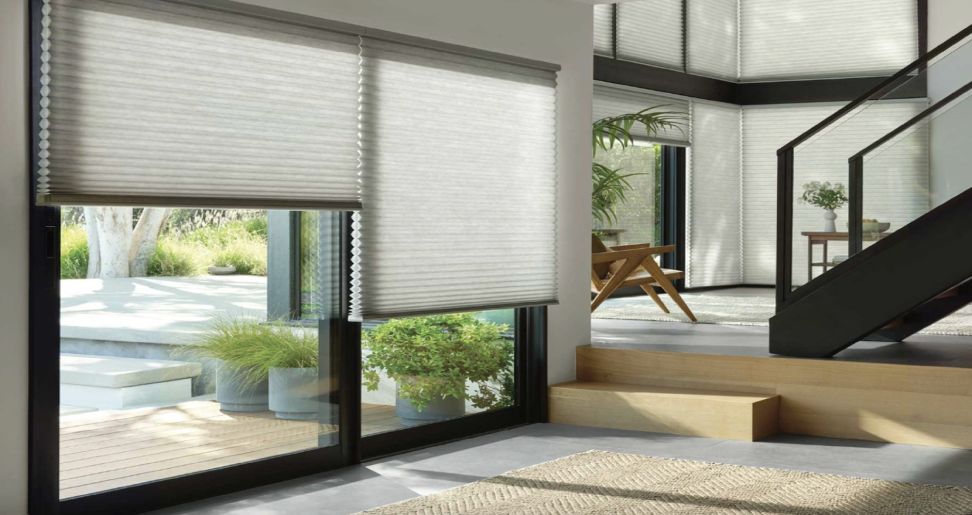In the world of interior design, doors are one of the key elements. Made from various materials, interior doors can significantly impact the overall appearance of a room, its functionality, and even its acoustics.
The website indigodoors.com offers a wide range of interior doors, manufactured in Nevada using modern technologies with special attention to detail and individual design.
In this blog, we will explore the variety of materials used in manufacturing interior doors and evaluate their pros and cons.
Wood

Wood is one of the most popular materials for manufacturing interior doors due to its natural beauty and warm appearance. It boasts a unique natural grain and texture, making each door unique.
The ability to choose from various wood species such as oak, ash, alder, or mahogany allows for matching the material to any interior.
One of the main advantages of wooden doors is their ecological cleanliness.
Wood is a natural material that does not emit harmful substances into the environment, making it safe for health. Additionally, wooden doors have good sound and thermal insulation properties, contributing to creating a cozy atmosphere in the room.
However, it should be noted that wooden doors require regular care and maintenance.
They are susceptible to moisture and can warp under its influence, especially in conditions of high humidity. Additionally, wood is susceptible to insect and fungal infestation, so proper surface treatment and protection are necessary.
When choosing wooden doors, their cost should also be taken into account. They may be more expensive compared to doors made from other materials, especially if elite wood species or doors with artistic carving are chosen.
However, the cost may be justified by the high quality and durability of this material.
Metal

Metal doors represent a sturdy and reliable solution for interior doors. They are characterized by high strength and durability, making them an ideal choice for those who value reliability and safety. Metal provides protection against burglary and is resistant to moisture, making such doors suitable for use in damp areas, such as bathrooms or kitchens.
One of the key advantages of metal doors is their fire resistance.
Metal can withstand high temperatures for extended periods, which slows down the spread of fire and ensures the safety of occupants.
This is particularly important for areas with an increased risk of fire, such as kitchens or utility rooms.
However, metal doors may have some drawbacks. They may be less aesthetically appealing compared to wooden or glass doors and may not blend as well with various interiors.
Additionally, metal doors can be susceptible to corrosion, especially in conditions of high humidity, if proper surface protection and treatment are not provided.
The cost of metal doors can vary depending on the material used and the design. They are typically more affordable compared to wooden doors, making them an attractive choice for those on a budget.
Overall, metal doors represent a reliable and safe solution for interior spaces, providing protection and fire resistance, although they may be less visually appealing.
Glass
Glass doors are an elegant and modern choice for interior spaces. They lend an air of lightness and spaciousness to the decor, creating a sense of openness and brightness. One of the main advantages of glass doors is their ability to allow natural light to pass through, making the room feel brighter and cozier.
This is especially relevant for spaces with insufficient natural lighting, such as hallways or vestibules.
Another benefit of glass doors is their ability to visually expand the space. Due to their transparency, glass creates an illusion of open space, which is particularly useful in smaller rooms. Thanks to this, glass doors have become a popular choice for modern design solutions, where emphasis is placed on minimalism and spatial freedom.
However, glass doors may have some drawbacks. One of them is their inadequate sound insulation.
Unlike wooden or metal doors, glass does not have good soundproofing properties, which can lead to noise infiltration from adjacent rooms.
This should be taken into account when choosing glass doors for residential spaces.
Another downside of glass doors is their vulnerability to damage. Glass can be susceptible to chipping, scratching, or even shattering upon strong impacts or external forces. This requires special care in operation and the possibility of glass replacement in case of damage.
The cost of glass doors may vary depending on the type of glass, its thickness, and design.
Usually, glass doors can be a more expensive option compared to wooden or metal doors, especially if tempered or laminated glass is used.
Overall, glass doors represent a stylish and modern solution for interior spaces, but they require special care in operation and may have limited soundproofing properties.
Plastic

Plastic doors offer an affordable and practical solution for interior spaces. They are lightweight and durable, making them a convenient choice for use in residential and commercial areas. Plastic is resistant to moisture and not prone to deformation or corrosion, making these doors suitable for installation in bathrooms or kitchens.
One of the main advantages of plastic doors is their resistance to external factors such as UV radiation or atmospheric precipitation.
This makes them suitable for installation both indoors and outdoors, for example, on balconies or terraces. With a wide range of colors and finishes available, plastic doors can easily integrate into any interior and complement its style.
However, it should be noted that plastic doors may have a limited lifespan compared to wooden or metal counterparts.
Plastic can age and fade under the influence of sunlight, which can lead to a loss of appearance over time. Additionally, plastic doors may be a less environmentally friendly choice compared to wooden doors due to the use of synthetic materials in their production.
The cost of plastic doors may be more affordable compared to other materials, making them an attractive choice for those on a budget.
However, it’s important to remember that cheaper options may have lower quality and durability, so it’s essential to choose products from reputable manufacturers with a good reputation. It’s also important to consider not only the cost of the doors themselves but also the expenses for their installation and subsequent maintenance.
One of the key aspects when choosing plastic doors is their energy efficiency.
Well-made and properly installed plastic doors provide good thermal insulation, helping to save on heating costs during colder periods.
This is especially relevant for residential spaces where it’s important to provide comfortable living conditions with minimal energy expenditure.
Conclusion
Each material has its advantages and disadvantages, and the choice between them depends on individual preferences, budget, and functional needs.
When choosing a material for interior doors, it’s important to consider not only the appearance but also factors such as durability, sound insulation, and maintenance requirements to ensure comfort and meet the needs of your interior.
Additional:
- What Types Of Games Are Available On Snokido?
- Best Vijay Kedia Portfolio Stocks – Hidden Gems For Long Term?
- TAQA Looks To Bet Big On Adani’s Power Business With $2 Billion Investment





